Summer School
The Sexy Part
“Do you really want to do this?” my colleague asked when I first agreed to be the Artistic Director of the Kenyon Playwrights Conference. And truth be told, every year when my college classes end in early May and I’m finally through the stacks of grading, I ask myself the same question. “Why,” I wonder, “Did I give up the summer’s precious writing time to teach a workshop?” Then the conference week begins and I remember.
Adult students appreciate what undergraduates take for granted—being in a room with each other, hearing their work read aloud, and having people talk to them as if they’re writers. They are extraordinarily grateful—for the feedback you offer, for your ability to articulate how play structure works, even for giving them permission to abandon the play they’ve come with. And because the Kenyon Playwrights Conference brings together three US/UK theatres, their literary managers, and three commissioned playwrights for this June intensive, they are learning outside the workshop too.
Some of my students are teachers, some run theatres, and some are just out of graduate school. One was a successful television writer who was eager to return to her own writing, another was a fiction writer eager to try another form. One man had run a theatre in Iowa for forty years, and was in the newly vulnerable position of being the playwright. His play had already been a crowd-pleaser there and yet he was enough of a pro to know his play could be strengthened. One was a former NYC actor who, after a conversation over a beer at the Village Inn, sent me a little-known monograph on the Group Theater, which I used as research in an HBO pitch for a film about Stella Adler (they passed).
When we began the workshop, we thought the sexy part of KPC was our affiliation with prestigious theatres like Steppenwolf and Playwrights Horizons, but we found out that the “networking” mattered less to the workshop students than the instruction.
Another workshop student had a play that ran Off-Broadway for two and a half years. He could have been teaching the workshop, but because he was going through a divorce and a mid-career lull, he just needed to hear how good he was. His new play was exceptionally funny in fact, and it was enough for me to say: Keep going.
When this playwright returned the following summer, I placed him in a section with a literary manager who came from a major regional theatre, thinking that contact would serve him professionally, but over a beer he wondered aloud why he’d been assigned to a different section. When we began the workshop, we thought the sexy part of KPC was our affiliation with prestigious theatres like Steppenwolf and Playwrights Horizons, but we found out that the “networking” mattered less to the workshop students than the instruction. Happily, most of the visiting literary managers who teach in the workshop are also experienced teachers. Christian Parker for example, who first came to us from the Atlantic Theater, is also the chair of the graduate theatre program at Columbia. And regardless of whose section they’re assigned to, the workshop students meet the literary managers and playwrights over drinks or in the soft-serve queue in the dining hall.
Our first summer we scheduled panels about writing for film and television; one of our commissioned playwrights, Tracy Scott Wilson, was currently writing for The Americans. Our workshop students politely told us that they weren’t really interested in that stuff—they wanted to write plays. So last summer the professional playwrights did master classes instead, offering sessions on writing comedy from tragedy, on translation and adaptation, and on solo performance. During that class, we got to see the writer/actor Michaela Coel perform her brilliant solo show Chewing Gum Dreams, which she’d just done at the National Theatre.
During the application process, one woman worried that she’d be the oldest student at the conference—she wasn’t. Another, whose college was paying her workshop tuition, worried that she’d be the youngest—she wasn’t. We always have young blood around—at least ten Kenyon student interns serve as readers, assistant directors, stage managers, and workshop assistants.
As well as teaching dedicated students—so dedicated they use their vacation time to come to the conference—I also get to play host to the extraordinary playwrights we’ve co-commissioned. Some, like Craig Lucas, have been my idols, while others are up-and-comers I’m eager to champion, like Halley Feiffer (not that she needs another champion). The much beloved Rona Munro was exactly at my age and stage, although she soon surpassed me with a major success this fall at the National Theatre with her Scottish history plays, The James Plays.
On a walk together at a local land preserve, Rona asked me whether I’d yet written the play, the play I’d always wanted to write. (This was a more benevolent version of a friend’s routine greeting to fellow writers: “You written the Big One yet?”) I realized that I hadn’t; and that we’re all trying to write the play we know we’re capable of.

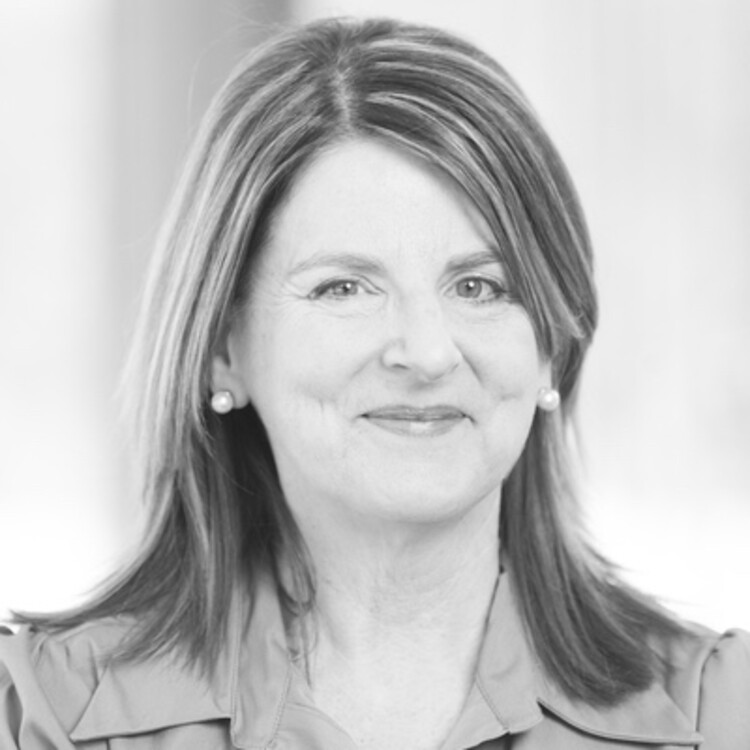
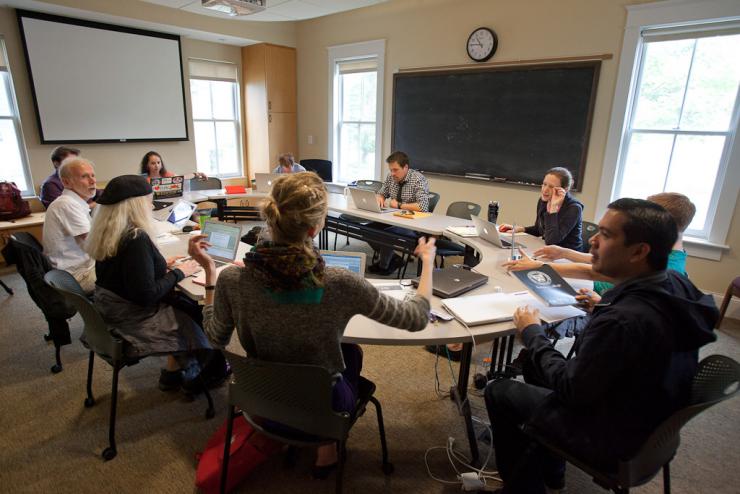
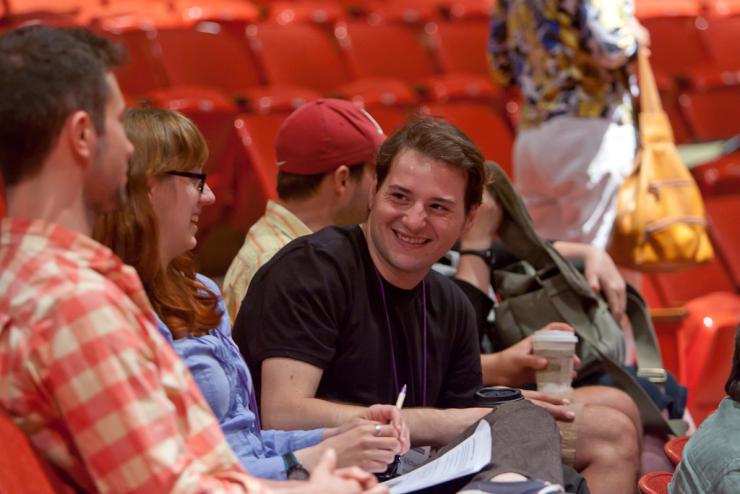
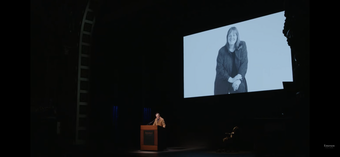

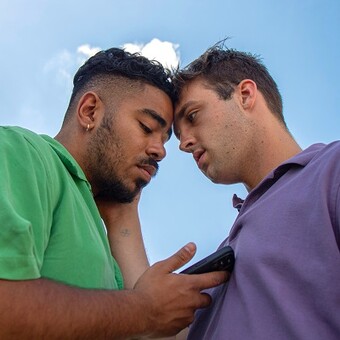

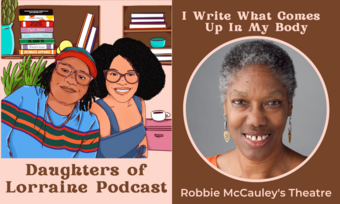


Comments
The article is just the start of the conversation—we want to know what you think about this subject, too! HowlRound is a space for knowledge-sharing, and we welcome spirited, thoughtful, and on-topic dialogue. Find our full comments policy here